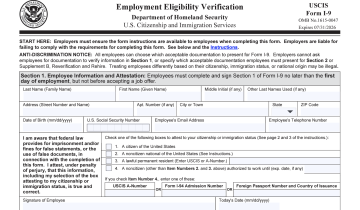On April 28, Cleveland’s City Council added the city to a growing number of jurisdictions mandating employers to adopt pay transparency practices and limiting employers from making salary history inquiries of candidates.
Ordinance 104-2025 will become effective on October 27, 2025.
Here is a summary of the ordinance’s requirements for employers with 15 or more employees in the city.
Salary History Ban
Unless otherwise allowed by an exception stated in the ordinance, employers will be prohibited from:
- Inquire about the salary history of an applicant,
- Screen an applicant based on their current or prior salary history, including requiring that an Applicant's prior salary history satisfy minimum or maximum criteria,
- Rely solely on the salary history of an applicant, except as provided in division (d) of the ordinance, in deciding whether to offer employment to an applicant, or in determining the salary for such applicant during the hiring process, including the negotiation of an employment contract, and
- Refuse to hire or otherwise disfavor, injure, or retaliate against an applicant for not disclosing their salary history.
Employers are permitted to discuss an Applicant’s compensation expectations.
Pay Transparency Requirements
Employers must also “provide the salary range or scale for potential employment in the notification, advertisement, or other formal posting that offers the opportunity to apply for employment.”
Exceptions
The requirements do not apply in these situations:
- Any actions taken by an employer pursuant to any federal, state, or local law that specifically authorizes the reliance on salary history to determine an employee's compensation,
- Applicants for internal transfer or promotion with their current employer,
- A voluntary and unprompted disclosure of salary history information by an applicant,
- Any attempt by an employer to verify an applicant's disclosure of non-salary related information or conduct a background check, provided that if such verification or background check discloses the applicant's salary history, such disclosure shall not be solely relied upon for purposes of determining the salary of such applicant during the hiring process, including the negotiation of an employment contract,
- Applicants who are re-hired by the employer, provided that the employer already has past salary history for the applicant from the previous employment of the applicant,
- Employee positions for which the salary is determined pursuant to procedures established by collective bargaining, and
- Federal, state, and local governmental Employers, other than the city.
Recommended Employer Actions
Employers in Cleveland should evaluate the need to comply with the ordinance and be prepared to do so by the effective date. Now would be an ideal time to ensure you have, or have a plan for, established pay ranges for all positions within your organization. Multi-state employers should compare this ordinance with other existing laws to determine how to address all laws in all jurisdictions. Recruiting, interviewing, and hiring procedures may need to be updated. Training may also need to be offered to anyone involved in the recruiting, interviewing, and hiring processes.
Conclusion
The momentum of local pay equity laws is undeniable. Employers not already subject to one of the many existing laws should prepare for additional local legislative developments.
If your organization needs assistance with pay equity compliance, contact us today to learn how MRA can help.






